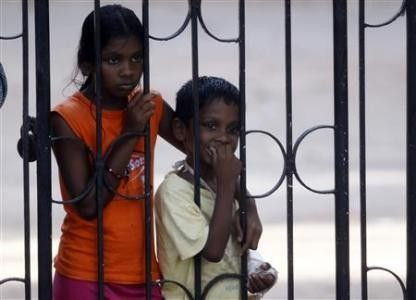Don’t cut aid to poor countries, advocates say

Aid to developing nations is not a major issue at the G-20 Summit, but at least one NGO says it should be.
The emerging Seoul G-20 development agenda is right to reject the old one-size-fits-all model of development, in favor of one where developing countries shape their own future, said Ben Phillips, Asia Strategy Director for Save the Children. It's right to call for growth, but growth alone is not enough.
Phillips said that aid is needed to enable low-income countries to provide health and education to all their children, especially in the wake of the global economic crisis.
South Korea, the conference's host nation, is receiving credit for having pushed to have development put on the G-20 agenda. But two significant concerns have arisen as discussions have gone forward. The first is that, in all the heated debate on currency and trade imbalances, the development issue will fall by the wayside.
The second concern is that the issue of aid has been decoupled from that development.
As Gregory Chin of the nonpartisan governance think tank CIGI has noted, the agenda item focuses on the 'economic' dimension of development, emphasizing sustainable, balanced and enduring growth, and building resiliency. Aid discussions are excluded and better left to other arenas such as the United Nations, World Bank and the G8.
Save the Children thinks the time to address the issue of aid to poorer countries is now.
We hear talk about weaning countries off the addiction to aid, Phillips said. That's well and good. But the way to move away from aid is to build capacity in those countries. But simply cutting aid now will, literally kill.
Phillips cited a World Bank report that says over a quarter of a million children will die between 2009 and 2015 as a direct result of the global financial crisis, if the recovery proceeds at a steady pace. If it does not, the death toll could rise as high as 1.2 million children.
Save the Children said approximately 350,000 children have dropped out of school because of the global crisis.
Aid is vital and the world's leading nations know it, Phillips said.
Meeting at Gleneagles, Scotland in 2005, the then G-8 pledged that its members and allied nations would contribute .07 percent of their gross national incomes to assist the world's poorer countries, delivering the promised aid through various vehicles, such as the UN, NGOs and their own governmental agencies.
France has not delivered in full on its promise at Gleneagles, although it is currently increasing aid, Phillips said. Italy, meanwhile, is cutting aid.
Angel Gurria, secretary-general of the Organization for Economic Cooperation and Development, a powerful NGO that is consulted by most G-20 nations, said at a press conference on Wednesday in Seoul that the economic crisis should not be used as an excuse for cutting aid.
We encourage those countries that have not met their commitments to get back on the virtuous path, Gurria said.
Gurria agreed with Save the Children's position that the only way to move away from aid is to allow and help a poor nation to build capacity, so it can proceed on its own as a contributing partner in the global economy.
Adrian Lovett, Save the Children's global campaign director, noted that France is hosting the 2011 G-20 and has outlined an agenda that will emphasize fighting hunger and promoting health for all.
We're looking here in Seoul for President Sarkozy to state loud and clear his determination to lead efforts to ensure that every child grows up healthy, not hungry, and every country shares in global growth, Lovett said.
The woes of the global recession have their ultimate impact on the poorest children in the poorest countries, Phillips said.
He said the poorer countries do not have a voice in global decision-making, but should.
Why isn't the African Union a member of the G-20? he said. The European Union is. We need a process that is inclusive. When the process is inclusive, the outcome is more likely to be inclusive. When we do not give the poorer countries a voice, they get lost and forgotten.
© Copyright IBTimes 2025. All rights reserved.




















